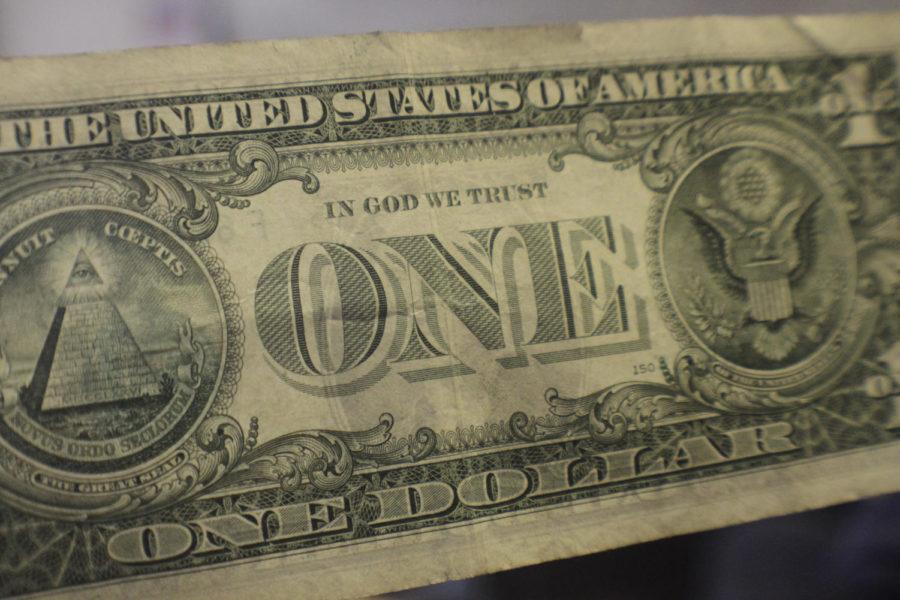Neuendorf: Phrasing on currency doesn’t define nation
March 7, 2014
A few days ago, the Daily published an article criticizing the text of “In God We Trust” printed on U.S. currency.
The stance of the argument emphasized the government and Constitution’s firm belief of the separation of church and state. And that is an undeniable fact reiterated time and time again whenever issues like the Pledge of Allegiance in public schools or even this silly, four-worded phrase somehow offends.
To clarify, I am not religious. I do not belong to any religion, leaving me a proud agnostic who claims to have no answers and has relatively abandoned the search for them. That being said, finding the “In God We Trust” embedded on our currency as offensive is sort of inane.
It brings up the issue of hypersensitivity that is often avoided in discussion because it risks the chance of being offensive just because questioning someone’s anger is seen as an attack in itself. Yeah, it is confusing and it honestly does not need to be. No one wants to be seen as the whiny one in the room when their feelings get hurt, and often those are the voices that incite change. And that is what makes the line between proactive complainer and futile complainer murky.
The columnist’s idea was to change the noun from “God” to “People.” If the words were changed to “In People We Trust,” what benefits would come of it? A new unity between Americans? Doubtful. Will Americans suddenly realize “Oh, God is not responsible for all this; we are. Maybe we should start trying harder to love one another”? Once again, it’s doubtful.
Does the inclusion of “In God We Trust” help anyone, though? No, probably not. If anything, it may keep some fervent religious people happy, and that is not a crime, is it? Let us be honest: Religion, overall, is losing the influence it once had, so maybe this phrase can be a glimmering reminder of the “good ole’ days” while Americans watch irreverence soak into every aspect of our society. Seems fair to me.
There is also an argument to be made against the “In People We Trust” possibility. If God did not win a war for us, he did not create the war to begin with. If God does not pull us out of an economic disaster, he did not formulate the downfall. Most likely, it is people who screw things up, and it is our responsibility to fix our flaws — or at least disguise them until a bigger, inevitable problem arises. That is human nature, after all. So whether it is “In God We Trust” or “People We Trust,” we still do whatever we do.
Besides, it is all ambiguous anyway. Who is to say what causes the force of human nature? Is it something larger — a God, if you will — or is it merely us little beings who collectively do significant damage and repair?
Also ambiguous is the meaning of God. Most religions — and as a result, a big chunk of people — place their faith in some higher being, and more often than not that force can be identified as “God.” God can be the divinity to a number of religions, God can be the belief in Mother Nature, God can be viewed as the explainable and unexplainable science. God can be seen as nothing more than the pure luck we encounter on a daily basis.
In a sense, God’s countless interpretations can be symbolic of not only our country’s growing diversity but the hope of the world’s tolerance to such diversity in faith. The general concept of faith is not going away anytime soon, nor should it. Faith is a driving force and comforting presence in many people’s lives.
Anyway, this is a confusing topic, often made more confusing than need be by those who desire political correctness everywhere they look. If an expression of religion is not harming anyone, as it does not in this case, then why protest? It is a marker of our country and will remain so until we decide to do something different, and when we do, it will not really make a difference.
Besides, we, the world, have bigger fish to fry than fretting about our nation’s motto.







